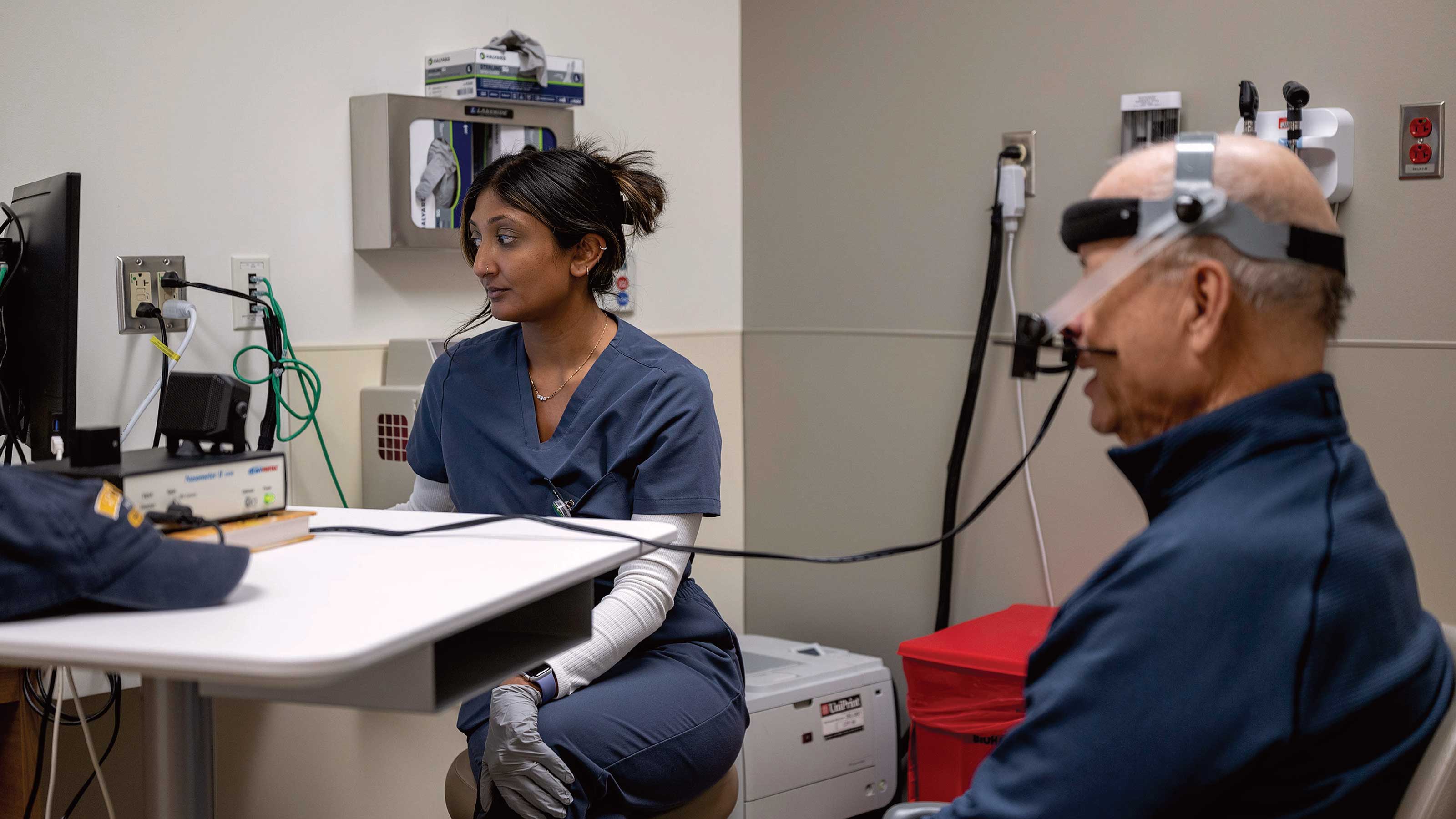
Editor’s note: As what we know about COVID-19 evolves, so could the information in this story. Find our most recent COVID-19 articles here and learn the latest in COVID-19 prevention at the Centers for Disease Control and Prevention. Some photos and videos on this site were filmed prior to the COVID-19 outbreak or may not reflect current physical distancing and/or masking guidelines.
Now that we’ve been living with the COVID-19 pandemic for some time, we’ve learned more about how the virus affects those who suffer the worst of its consequences. But plenty of questions remain, in particular what COVID-19 does to the hearts of those infected.
As an expert in cardiovascular disease, I can tell you that we’re seeing a strong connection between COVID-19 and heart inflammation — and that your best bet is to avoid COVID-19 altogether. But if you do get sick, take it easy on yourself and rest. Your heart will thank you.
Here are answers to some of the most common questions I hear about COVID-19 and what it can do to your heart.
Can COVID-19 affect your heart?
We know that COVID-19 can cause viral myocarditis, an inflammation of the heart muscle. What happens is that the coronavirus essentially attacks the heart. Current figures are showing that between 20% and 25% of patients hospitalized with COVID-19 have some kind of myocardial inflammation.
This can range from a small degree of inflammation to full-blown severe myocarditis. (A comparison in the respiratory system would be a cough all the way to pneumonia.)
What we don’t know is how often myocarditis appears in those who’ve had COVID-19 but weren’t sick enough to be hospitalized. There’s data showing that people in the community might have heart inflammation caused by COVID-19 without knowing it.
How do you diagnose viral myocarditis?
It depends on the severity of the myocarditis. In the most severe forms, it’s pretty obvious. There are symptoms — chest pain, shortness of breath, heart palpitations — along with abnormal electrocardiograms (EKGs), lab studies or possibly ultrasounds that show evidence of inflammation.
In very mild cases, we might only be able to see inflammation with a heart MRI, which is about as close as we can get to a biopsy of the heart muscle.
Does heart damage correspond to how sick you are with COVID-19?
It does appear that the sicker somebody is with COVID-19, the higher their chance is of developing myocarditis. But again, we’re getting most of our information from what’s happening in hospitals.
Does age matter? Is heart inflammation being seen in children?
Certainly we know COVID-19 causes much more significant degrees of illness based on age. But in terms of myocarditis, if you take out other factors, we haven’t seen anything specifically related to age. It’s less reported in children and teens, but it’s still happening.
Can COVID-19 cause long-term heart damage?
The short answer is that we don’t exactly know yet. There are certainly people who recover from myocarditis completely with no lingering effects. But there’s also plenty of evidence that inflammation, even as it recedes, can leave behind changes to the heart. This can include scar tissue, called fibrosis, which can put a patient at risk for abnormal heart rhythms, called arrhythmia.
Arrhythmias can affect your quality of life — you actually feel your heart beating abnormally. At their most severe, they can cause fainting and even death.
Are you seeing heart damage in people who have recovered from COVID-19?
We’re still early in the course of the disease. Usually we give the heart plenty of time to recover — six months at a minimum. So we can’t say definitely what kind of long-term damage we might be seeing yet.
Is COVID-19 more threatening for people with existing heart disease?
COVID-19 itself is more worrisome for folks with heart disease just because of your heart being able to handle the overall infection. But we don’t have any evidence that having heart disease in the background increases your risk for myocarditis.
Is COVID-19 more damaging to the heart than other viruses
Other viruses, including the flu, can cause viral myocarditis. The diagnosis has been around a long time, but in the world of cardiology, viral myocarditis is fairly rare. With this pandemic, we have so many patients with it — and the data and science show that this particular coronavirus has a higher affinity for the heart than other viruses.
How do you treat viral myocarditis caused by COVID-19?
We don’t have any treatments for myocarditis that change its course. The “treatment,” so to speak, is just to let the heart rest. In extreme cases where myocarditis affects the strength of the heart, we can use medication or mechanical support to keep the heart functioning until the inflammation goes down.
Can you do anything to protect your heart from COVID-19?
If you do have COVID-19, take it easy and don’t get back to exercising too early. Stressing your heart could cause further damage. You need to give yourself a break for at least a couple of weeks.
When you start exercising again, ramp up your activity slowly. Pay attention to symptoms such as chest pain, shortness of breath or heart palpitations. Stop and see your doctor if these occur.
This isn’t a time to “push through it.” Even the highest level of athletes are mandated to take a break and slowly ramp themselves up — they’re not allowed to go from COVID infection to game day.

When can athletes safely return to practice after COVID-19?
A cardiac MRI can identify myocarditis in COVID-19 positive athletes and determine when it's safe to return to competitive sports.
Read Our Study




